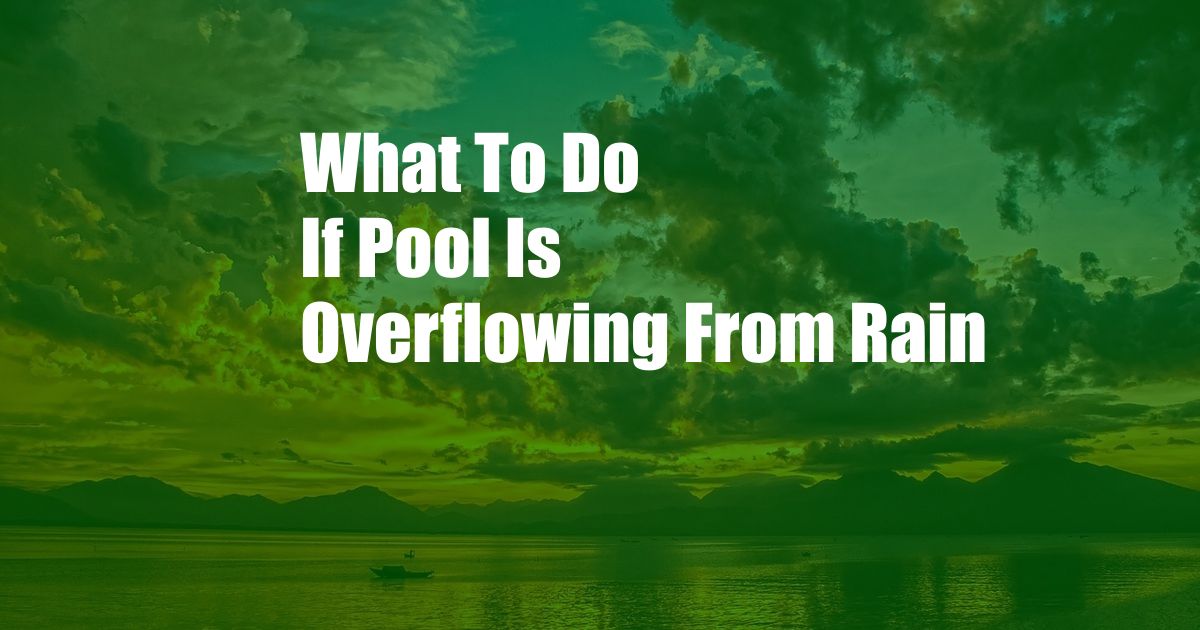
What to Do When Your Pool Is Overflowing From Rain
When heavy rain hits, it can cause your pool to overflow, leading to a messy and potentially hazardous situation. Here’s a comprehensive guide on what to do when your pool is overflowing from rain:
Check Your Sump Pump
A sump pump is a device that helps remove excess water from your pool area. If your pool is overflowing, check if your sump pump is functioning properly. Make sure it is plugged in and running, and that the discharge pipe is clear of any debris.
Clear Drain Holes
Your pool’s drain holes allow excess water to escape. If these holes become clogged, the water will not be able to drain properly and will cause the pool to overflow. Clear any leaves, debris, or other obstructions from the drain holes.
Use a Pool Cover
A pool cover can help prevent rain from entering the pool in the first place. If you have a pool cover, make sure it is securely fastened in place. If you don’t have a cover, consider getting one to protect your pool from future rain events.
Divert the Water
If the overflowing water is causing a hazard, you can divert it away from your pool area. Use buckets or a hose to redirect the water to a lower area or storm drain. This will help prevent flooding and erosion.
Call a Pool Professional
If you are unable to stop the overflowing on your own, or if the water is causing significant damage, call a pool professional. They can help you determine the cause of the overflow and recommend a solution.
Latest Trends and Developments
Recent advancements in pool technology have introduced innovative solutions for managing pool overflows during heavy rainfall. One such development is the use of automatic float switches. These devices detect rising water levels and activate the sump pump automatically, preventing overflows.
Expert Advice
- Regularly inspect your pool’s drain holes and sump pump to ensure they are clear and functional.
- Use a pool cover when not using the pool, especially during periods of heavy rainfall.
- If your pool has a built-in overflow system, make sure it is clear of debris and functioning properly.
- Monitor your pool’s water level during heavy rain and take necessary measures to prevent overflows.
FAQ
Q: What causes a pool to overflow from rain?
A: Pool overflows can occur when the amount of rainwater entering the pool exceeds the capacity of the drain system. This can happen if the drain holes are clogged, the sump pump is malfunctioning, or the pool cover is not properly secured.
Q: How can I stop my pool from overflowing during a downpour?
A: Clear the drain holes and check the sump pump’s functionality. Secure the pool cover and use a pool overflow system if available. Divert excess water away from the pool area if necessary.
Conclusion
Dealing with a pool overflow during a rainy season can be a hassle, but by following these tips and expert advice, you can effectively manage the situation and minimize any potential damage. Remember to prioritize safety and seek professional assistance if needed. Do you have any further questions regarding pool overflows due to rain? Let us know in the comments below.